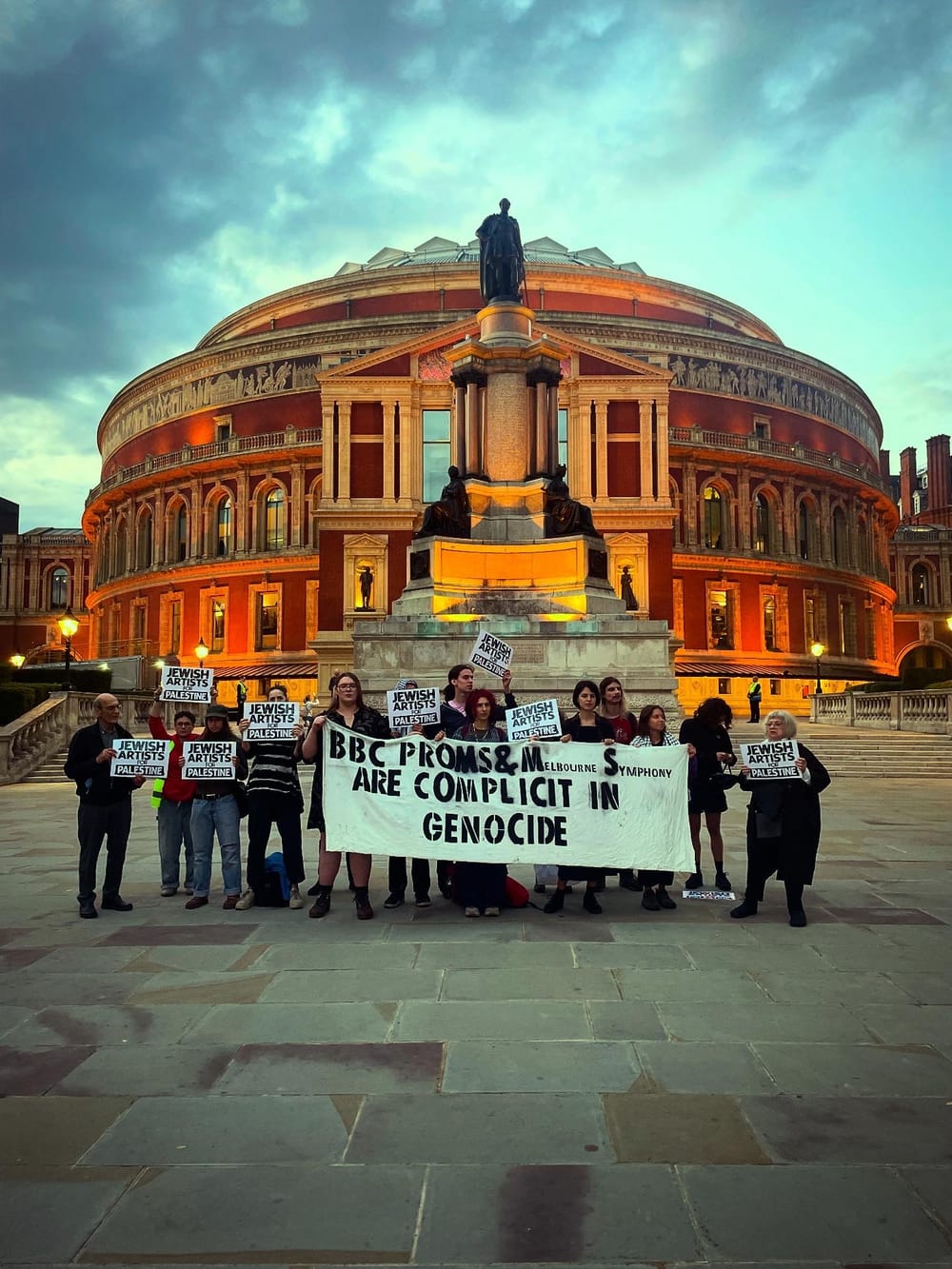
Earlier this week, Israel’s police arrested Mahmoud and Ahmad Muna – the owner and his nephew, respectively, of the Educational Bookshop in East Jerusalem – and raided two of their shops. (Mahmoud is the co-editor of Daybreak in Gaza, from which Vashti published an excerpt last October). The police confiscated dozens of the shop’s Arabic and English books, looking for anything with the word Palestine or the Palestinian flag.
Authorities entered the premises on the basis of suspected terror offences and accused Mahmoud and Ahmad of “inciting and supporting terrorism” through their books (including a colouring book). The police maintained their assertion of incitement even though the arrests were ultimately made on the basis of “disturbing public order”, a similarly absurd, if less severe, charge. The two were held for multiple nights in the Russian Compound prison, and released on Tuesday to house arrest and a ban on entering their shops for 20 days.
On the same day of the arrests, Afro-Palestinian activist Shaden Quous was released on bail, following a month of arbitrary detention. She was arrested on 6 January and similarly accused of incitement, in this case for social media posts. Shaden was released, one can only assume deliberately, hours after the funeral of her father, writer and African Community Society executive director Mousa Quous, who died unexpectedly in a fire on 9 February.
This is the status quo. The charge of incitement is manipulated and used to ensure that no norms are challenged, that agitation is subdued, and that terror is inflicted randomly and without warning.
For the oppressed, the master’s tools may never bring about genuine change. But for the master, they can do more than maintain his house. A new nightmare world is taking shape, and incitement is bringing it into existence.
Inciter-in-chief Donald Trump has continued to double down on his threats to purchase, ethnically cleanse, and redevelop Gaza into “the Riviera of the Middle East”. In the last week, he has intensified his threats against Jordan and Egypt, now stating that he will withhold US aid if they do not accept forcibly displaced Palestinians from Gaza in this hellish scenario. Both countries have so far rejected the idea, as the domestic consequences of participating are plainly untenable for both regimes. Yet the basic economics of American aid to Jordan and Egypt throws doubt on the durability of this resistance.
Both countries are substantially reliant on the billions of dollars they receive from the US every year, and have long been pliant American partners. Jordan recently signed its fourth Memorandum of Understanding with the US, securing $1.45 billion in aid every year for seven years (though at least $350 million was apportioned via USAID, which, apparently, no longer exists). Prior to the dismantling of the agency, 40% of Jordan’s total official aid came from the US.
In Egypt, nearly all aid money ($1.2 billion out of a total $1.5 billion in 2023) is earmarked for the country’s military, which continues to extend its power over the country’s economy and policy-making structures. On the back of a multi-year economic crisis, the military is now involved in managing the import of commodities including wheat, while military officials attend all meetings on economic issues convened by the president. With the military due to be hit the hardest by cuts to aid, and with such a central role in decision-making, it is unclear how far Egypt will be willing to go in resisting Trump’s threats.
There are sincere fears that annexation and forced displacement may also take place in the occupied West Bank. In a press conference, following a meeting with King Abdullah II of Jordan at the White House, Trump refused to rule out the possibility of Israeli annexation. This follows his executive order from 20 January lifting US sanctions on Israeli settlers. While the sanctions proved to be completely ineffective in curbing settler violence over the past year, removing them is plainly tantamount to encouraging violence against Palestinians.
Commentators have demonstrated that Trump’s incitement to ethnic cleansing has had an immediate psychological and political impact on Israeli politics. Senior officials, from Netanyahu to religious Zionist figureheads Itamar Ben-Gvir and Bezalel Smotrich, to putative opposition figures like Benny Gantz and Yair Lapid, have all celebrated the idea. But more than that, as Meron Rapaport argues in +972, it threatens to undermine any basis for future peace negotiations: “What incentive would any government or party have to push for a political agreement with the Palestinians if the Jewish public sees their expulsion as a viable alternative?” he asks.
Trump’s discursive incursion builds directly on Israel’s own long campaign of incitement, which has fueled its genocide in Gaza. A joint project of Law for Palestine and Visualizing Palestine has logged over 400 incidents of incitement to genocide by Israeli officials, legislators, soldiers, public figures, and members of the media since 7 October 2023. These include statements that call for or praise efforts to starve and kill Palestinians, to physically destroy Gaza’s infrastructure, and to enact forced displacement and ethnic cleansing. Israel’s State Prosecutor and Attorney General elected not to proceed with any criminal investigations into the statements of senior officials, effectively covering up these well-documented crimes by citing a lack of public interest in such investigations.
Israel has demonstrated that wide-scale incitement changes reality, and, unsurprisingly, is met with perpetration. With Trump lighting the fire, and Israel now using his plan as leverage in frighteningly rocky ceasefire negotiations, it is impossible to predict what is about to happen. What must it be like to be caught within this everyday existence and the oncoming conflagration?▼
Evan Robins is an editor at Vashti.
To donate once or monthly, click here.
Author

Evan Robins is an editor at Vashti.
Sign up for The Pickle and New, From Vashti.
Stay up to date with Vashti.



